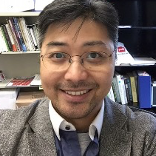May 2019: Myounghoon Jeon (Philart)

Myounghoon Jeon (Philart)
Associate Professor
Department of Industrial and Systems Engineering
PhD, Engineering Psychology and Human-Computer Interaction, Georgia Institute of Technology
MS, Engineering Psychology, Georgia Institute of Technology
MS Cognitive Sciences (Cognitive Engineering), Yonsei University
BA, Psychology, Sociology, Yonsei University
Email myounghoonjeon@vt.edu
How do you see your work contributing to the goals and vision of IIHCC?
Initially, I can say that we are focusing on a non-traditional construct, which is emotions. Previously, human-computer interaction and human factors have focused mostly on cognition, but we want to see the entire human. Not just cognition but cognition, emotion, and behavior—all things that we want to see together. And, we also focus on a non-traditional modality, which is audio because, previously, 90% of all the research projects in human-computer interaction focused on vision. So, we focus on audio as well as visual, tactic, and haptic. This type of different focus on non-traditional constructs and modality can help us see the interaction between humans and technologies in a more holistic way, and then, we can improve the interactions between people and technologies. Ultimately, that will contribute to making intelligent infrastructure for the community and Virginia Tech.
What other areas outside of your discipline would you entertain for future research and proposal work?
While working at Michigan State, we created an after-school program called “Child-Robot Theater”. We would bring all the robots to the elementary school every Wednesday and create live theater play with the kids. The kids were the actors and actresses, and they were directing, selecting music, and making props. Even when they were making props with crayons and pens, we had swarm robots, like vehicle robots, with pens attached to their body so that the children could make geometric shapes (e.g., Beast’s castle) using the swarm robots. We did this after-school program a couple of times. One iteration lasted 8-12 weeks and every week was a different module: acting module, music module, drawing module, and dancing module to learn about robots, STEM education, and also art, music, and dance. We call this STEAM education: STEM plus art and design. I used to work in computer science and psychology and so, my students came from computer science and psychology, but this project is really about theater. One very good thing about Virginia Tech is that we have visual arts and performing arts departments. I want to work more with these music, theater, dance, cinema, and visual arts folks. That could really add to this STEAM education project.


